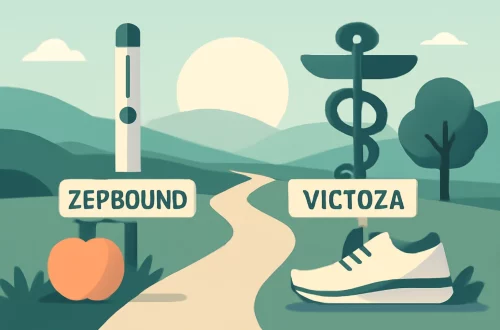
Are Slugs Poisonous to Dogs? What Pet Owners Should Know
Pet owners often find themselves in a constant battle to ensure their furry companions are safe from various hazards in their environment. One often overlooked creature that can pose potential risks to dogs is the common slug. These slimy mollusks are found in gardens and yards, and while they might seem harmless, they raise questions about their safety around pets, particularly dogs.
Understanding the potential dangers that slugs may pose is crucial for any dog owner. Many pets are naturally curious and might be inclined to investigate or even consume these creatures. While slugs are not classified as poisonous in the way that some other animals are, there are still concerns regarding their consumption and the risks they might carry. Additionally, slugs can be hosts for parasites, which can lead to health issues in dogs if ingested.
As responsible pet owners, it is essential to be informed about the implications of slugs in your dog’s environment. Knowing how to recognize potential dangers and what actions to take can help maintain your dog’s health and well-being. This article aims to delve into the various aspects of slugs and their impact on dogs, ensuring that pet owners have the knowledge they need to keep their beloved pets safe.
Understanding Slugs and Their Habitat
Slugs are soft-bodied, slow-moving mollusks that thrive in moist environments. They are often found in gardens, forests, and along the edges of bodies of water. Slugs play a role in the ecosystem by breaking down organic matter and serving as a food source for various animals. However, their presence in a home garden can be concerning for pet owners.
These creatures prefer dark, damp places, making gardens and undergrowth ideal habitats. They are most active during the night or on overcast days, which is when they venture out for food. Slugs feed on a variety of plant materials, including fruits, vegetables, and decaying organic matter. Their feeding habits can lead to significant damage in a garden, prompting pet owners to seek methods of control.
While slugs themselves are not inherently toxic, they can pose indirect risks. For example, they may carry parasites such as lungworms, which can infect dogs if ingested. This is particularly concerning for curious dogs that might munch on slugs while exploring their surroundings. Furthermore, slugs can be a sign of a garden’s overall health, as they thrive in areas with high moisture content, which can also attract other pests and parasites.
To minimize the risks associated with slugs, pet owners should regularly inspect their yards and gardens. Keeping the area tidy, removing debris, and controlling moisture levels can help deter slugs from making a home in your garden. Additionally, being aware of your dog’s behavior is crucial. If your dog is known to eat anything they find outside, extra precautions should be taken to limit their access to areas where slugs may be present.
Are Slugs Poisonous or Dangerous to Dogs?
The question of whether slugs are poisonous to dogs is often a concern among pet owners. While slugs themselves do not produce venom or toxins that can harm dogs, they can carry parasites that pose significant health risks. One of the most notable parasites associated with slugs is the lungworm, specifically the species Angiostrongylus vasorum. This parasite can infect dogs when they ingest slugs or snails that are carriers.
Lungworm infection can lead to a range of health issues in dogs, including respiratory problems, bleeding disorders, and in severe cases, even death. Symptoms may include coughing, difficulty breathing, lethargy, and a lack of appetite. If a dog is suspected of having ingested a slug, it’s essential to monitor them closely for any signs of illness.
In addition to lungworms, slugs can also carry other parasites, such as the rat lungworm, which can affect both dogs and humans. The risk of transmission increases when dogs hunt or forage in areas where slugs are common. Therefore, it’s crucial for pet owners to remain vigilant and take preventive measures.
While the act of consuming a slug may not lead to immediate poisoning, the potential for parasitic infections is a significant concern. Pet owners should educate themselves about the symptoms of lungworm infection and consult their veterinarian if they suspect their dog may have ingested a slug.
To keep dogs safe from slugs and their associated risks, pet owners can take several proactive steps. Regularly inspecting the yard for slugs, using barriers such as copper tape, and employing natural deterrents can help minimize encounters. Additionally, training dogs to avoid eating unfamiliar objects or creatures can reduce the likelihood of them consuming slugs.
Preventive Measures for Pet Owners
Preventing slug-related health issues involves a combination of environmental management and responsible pet ownership. One of the most effective strategies is to create a dog-friendly garden that minimizes the attraction of slugs. This can include removing standing water, keeping the grass trimmed, and clearing away debris where slugs may hide.
Using natural slug deterrents can also be beneficial. For instance, diatomaceous earth is a non-toxic powder that can be sprinkled around garden beds to deter slugs without harming pets. Additionally, creating barriers, such as copper tape, can be an effective way to keep slugs away from certain areas of the yard.
Another preventive measure is to supervise outdoor playtime. Keeping an eye on your dog while they are outside can help prevent them from eating slugs or other potentially harmful creatures. Training your dog to follow commands like “leave it” can also help deter them from foraging in the garden.
Regular veterinary check-ups are essential for maintaining your dog’s health and can help catch any potential issues early on. Discussing your concerns about slugs and other environmental hazards with your veterinarian can provide you with tailored advice for your specific situation.
In addition to these preventive measures, it is important to educate family members about the risks associated with slugs. Ensuring that everyone in the household understands the importance of keeping dogs away from potential hazards can create a safer environment for your pets.
What to Do If Your Dog Eats a Slug
If you suspect that your dog has eaten a slug, it is important to act quickly but calmly. While not every instance of slug consumption will lead to health issues, it’s essential to monitor your dog for any signs of illness. Symptoms to watch for include coughing, difficulty breathing, vomiting, diarrhea, or lethargy.
If your dog displays any of these symptoms, it is crucial to contact your veterinarian immediately. They may recommend bringing your dog in for an examination or monitoring them at home, depending on the severity of the symptoms. Your veterinarian can provide guidance on whether further testing or treatment is necessary.
In some cases, the ingestion of a slug might not lead to immediate health concerns, but being cautious is always best. It’s important to maintain a record of your dog’s behavior and any symptoms they experience. This information can be valuable to your veterinarian in determining the appropriate course of action.
While the prospect of your dog eating a slug can be concerning, understanding the risks and knowing how to respond can help alleviate anxiety. Keeping your dog’s environment safe and being vigilant about their behavior can significantly reduce the likelihood of slug-related health issues.
In conclusion, while slugs are not poisonous to dogs in the traditional sense, they can pose indirect risks through the parasites they may carry. As a responsible pet owner, staying informed and taking preventive measures can help keep your dog safe from potential hazards associated with slugs.
**Disclaimer:** This article is not intended as medical advice. For any health concerns regarding your pet, please consult a qualified veterinarian.




